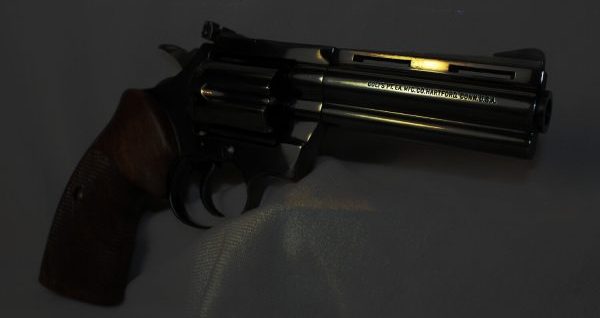
The Chicago Tribune is reporting that in a single 24-hour period over the past weekend, 24 people were shot in the Windy City, including three adults who died, and that likely brings the 2019 body count to 90-plus.
A running count is maintained by the Chicago Sun-Times, which listed 89 slayings in the city as of April 3. Presumably this past weekend’s fatalities won’t appear until later.
In state legislatures across the country, and on Capitol Hill, Democrats pushing gun control (not “gun safety” or “gun reform”) bills have been a busy bunch so far this year. The focus appears to still be on so-called “universal background checks,” but it is a strong likelihood that some, if not most, of the people using guns to kill other people in Chicago obtained their firearms without benefit of background checks. Even if they did, there is no guarantee that the blood fest would be interrupted.
Washington State adopted “universal background check” legislation more than four years ago by public vote, and that hasn’t stopped people from killing one another. In Seattle last year, 32 people were slain, not all of them with guns. So far this year, about a half-dozen people have died, according to Seattle Police data, including the two men who died in the Lake City rampage—one was shot, the other died in a head-on crash with the shooting victim’s car, driven by the suspect who now apparently claims he was in a drunken blackout—so pushing such checks may be more of a placebo than a panacea.
The Washington Post is reporting that major mass shootings, which remain rare, have had “little effect” on voting in the communities where they happened. That may also be the case in cities with a high number of homicides and shootings in cities such as Chicago, where it seems much easier to get elected with a “D” next to one’s name.
In Oregon Monday, there is a “work session” and vote on controversial Senate Bill 978. Opposition to that measure brought legions of protesters to Salem, the state capitol, recently. The Oregon Firearms Federation is monitoring that bill, noting that the work session before the Senate Judiciary Committee was scheduled to begin at 8 a.m.
Democrats across the landscape promised to push gun control when they took control of the U.S. House of Representatives, and their state-level contemporaries have done likewise.
But none of them appear to be taking a lesson from the situation in Chicago. Illinois has some strict gun control laws, but they haven’t put murder on hold along the southwest shore of Lake Michigan. The laws have made it more difficult for law-abiding citizens to exercise their rights, leaving many people in the Second Amendment community wondering if that wasn’t the intent all along.